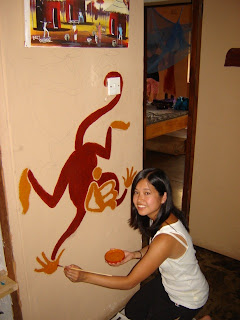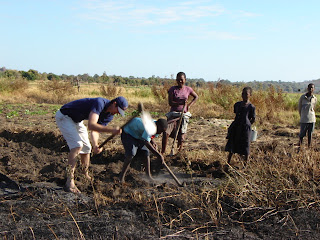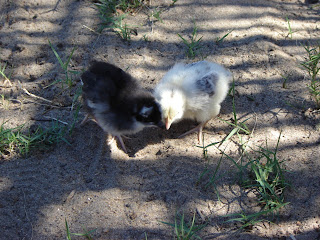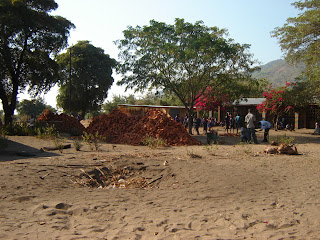Another week has flown by here in Lifuwu. Last week we started some new projects
around the house and went on an adventure looking for fruit to pick. On the weekend we went to the Safari
Beach Lodge for dinner and drinks, then we went to church on Sunday, and I gave
another sermon.
Kim and a few other volunteers have begun painting murals in
the rooms of the guest house here.
One of the volunteers, Mara, is an art student in Ireland, so she has
drawn different Africa-themed pictures, and then they paint them. One room is the “Safari Room”, with
different animals on the walls.
Another is “Snorkeling in the Lake”, which will have an underwater
theme, and the third room is “In the Village”. The rooms are looking so much more cheerful and fun! Here are a couple pictures of Kim and
Mara working on the Safari Room.
On Friday after construction, we went on a trek through the
countryside looking for bwemba, which in
English is called tamarind. We had
Elia, a boy from the villiage, as our guide. A lot of children tagged along, which was really fun. We found one tree, but the monkeys had
already eaten most of the fruit, so Elia showed us another place to find them,
and there were so many fruits! I
started picking the low-hanging fruit, but some of the children took it upon
themselves to climb the tree and pull fruits off from much higher. It looked quite dangerous, but they
didn’t seem to care at all. Here
is a picture of me picking the fruit and one of the boys in the tree.
The fruit itself is a brown pod, and inside is a seed
surrounded by pulp. Here is what
it looks like.
Tamarind is a sour fruit used to make soft drinks in Latin
America, but it is also used in different Malaysian curries. In order to make the drinks and curry,
you have to boil the tamarind in a little water and strain out the seeds.
Eventually, you are left with a syrup or paste, which can
then be used in drinks and curries.
To replicate the Latin American drink, I put a little bit of the syrup
in a glass, then filled it with Sprite.
They were very tasty!
On Sunday, we went back to church, and I gave another
sermon. The theme was “the Aim of
Christ”, and it was based on the gospel John, when Jesus washed the feet of the
disciples. I think the sermon went
quite well. I discussed the
importance of spreading love by serving others in humility. One member of the church, Brian, spoke
to the congregation about my message.
He talked about how the adults in Lifuwu don’t spend much time with the
children (I think adults here think that playing with children is not serious
work, so they don’t feel a need to do it), and he encouraged the congregation
to follow the example of the volunteers.
I felt a bit awkward receiving such praise, but then again it shows that our work here is appreciated.





















































